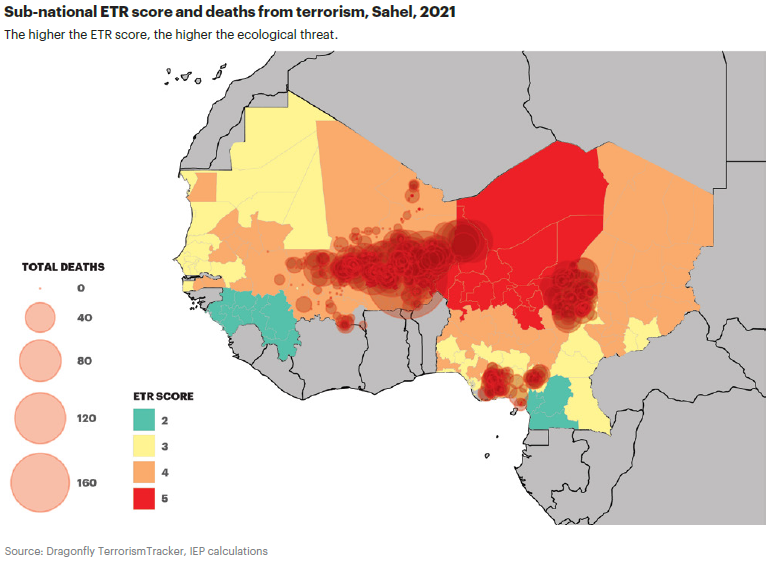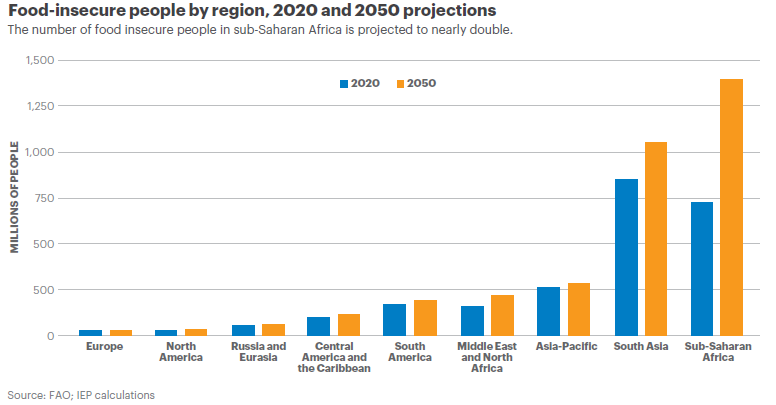When Russia invaded Ukraine on the 24th February 2022, the global financial markets braced for a shock. The economic impacts of the invasion were immediate and significant. The prices of global commodities such as food and oil continue to soar as a result of the crisis and the situation appears bleak. The conflict in Ukraine has led to what United Nations General Secretary António Guterres describes as a ‘triple food, energy and financial crisis.’
The events in Ukraine could not have come at a worse time for a number of countries experiencing a perfect storm of the impacts of the ongoing conflict, the economic fallout of COVID-19 and a number of environmental issues. These price surges have therefore disproportionately impacted those with the lowest resilience and capability navigate these shocks.
In some regions this crisis is occurring in the context of devastating ecological degradation. The Sahel Region of Africa covers 10 countries, 6 of which are classified as ecological hotspots and are suffering from a combination of rapid population growth, food risk and water risk. Economic shocks and rises in commodity prices are stripping these countries of their ability to mitigate the threats they are already facing, and weakening their capacity to navigate future crises. Many of these countries are grappling with their own conflicts and internal instability which further contributes to resource degradation, and the current approach from the international community is unlikely to alleviate these pressures.

As countries rush to bolster defence spending, many international aid budgets already slashed as countries grappled with COVID, have shifted their focus to the crisis in Ukraine. This is occurring against a backdrop of developing countries facing a potential debt crisis triggered by rising interest rates and enormous debts as a result of COVID-19.

Hunger has been increasing in almost all countries affected by conflict, climate change and economic downturns, and the conflict in Ukraine is highly likely to exacerbate these issues. Food insecurity already poses an increasing threat, with up to 2.4 billion people already impacted. This is expected to rise by a further 43% by 2050, impacting well over a third of the world’s population.
In the short term, some of the world’s most vulnerable will pay a significant price as a result of the conflict. Global inequality serves a stark reminder that there will be far more victims of the Ukrainian conflict than just those in Europe.